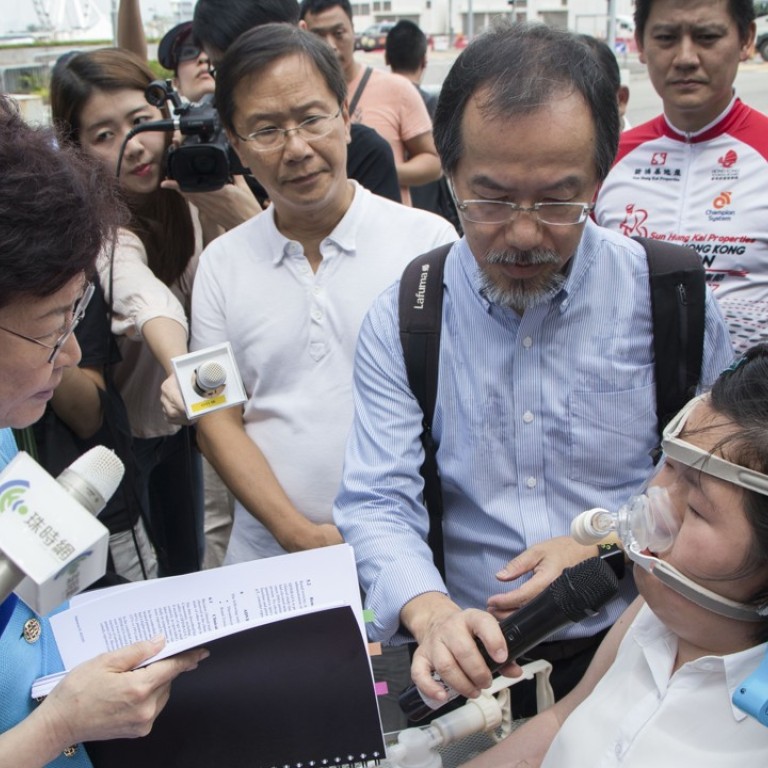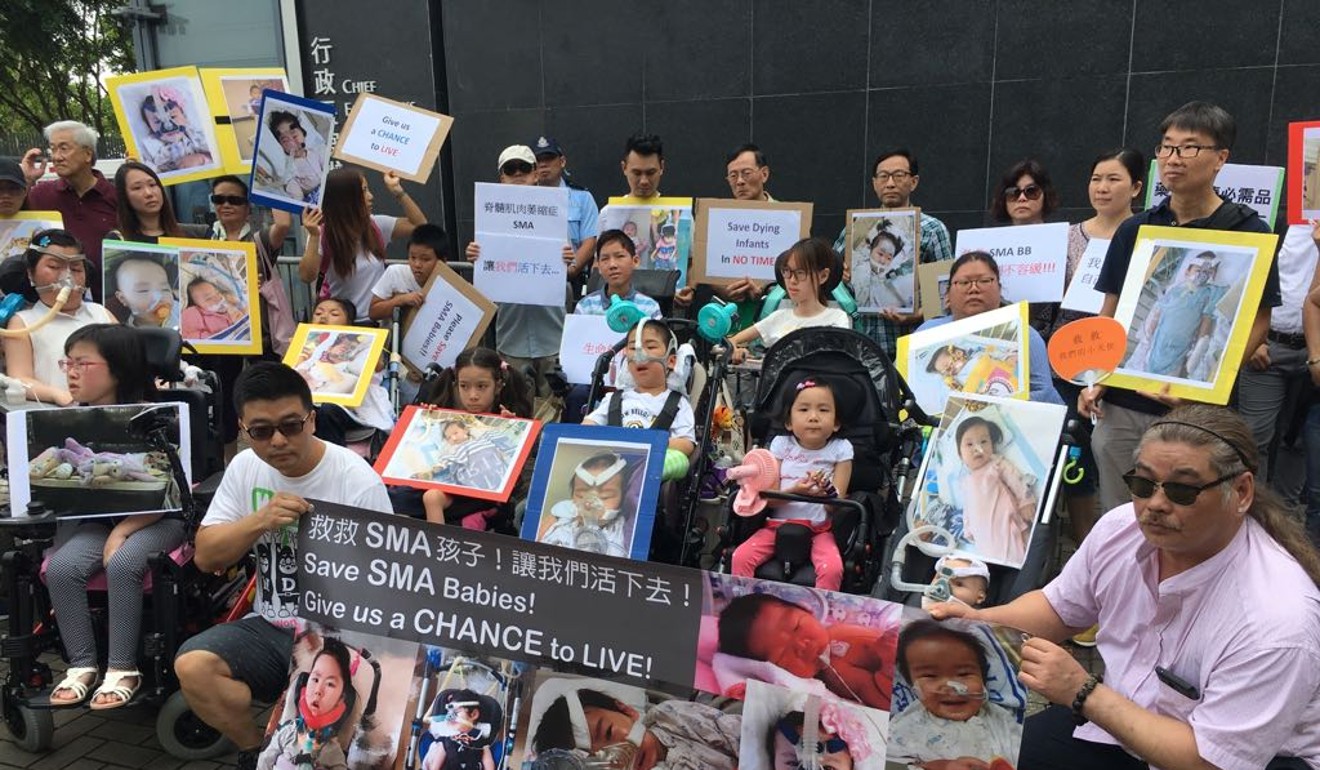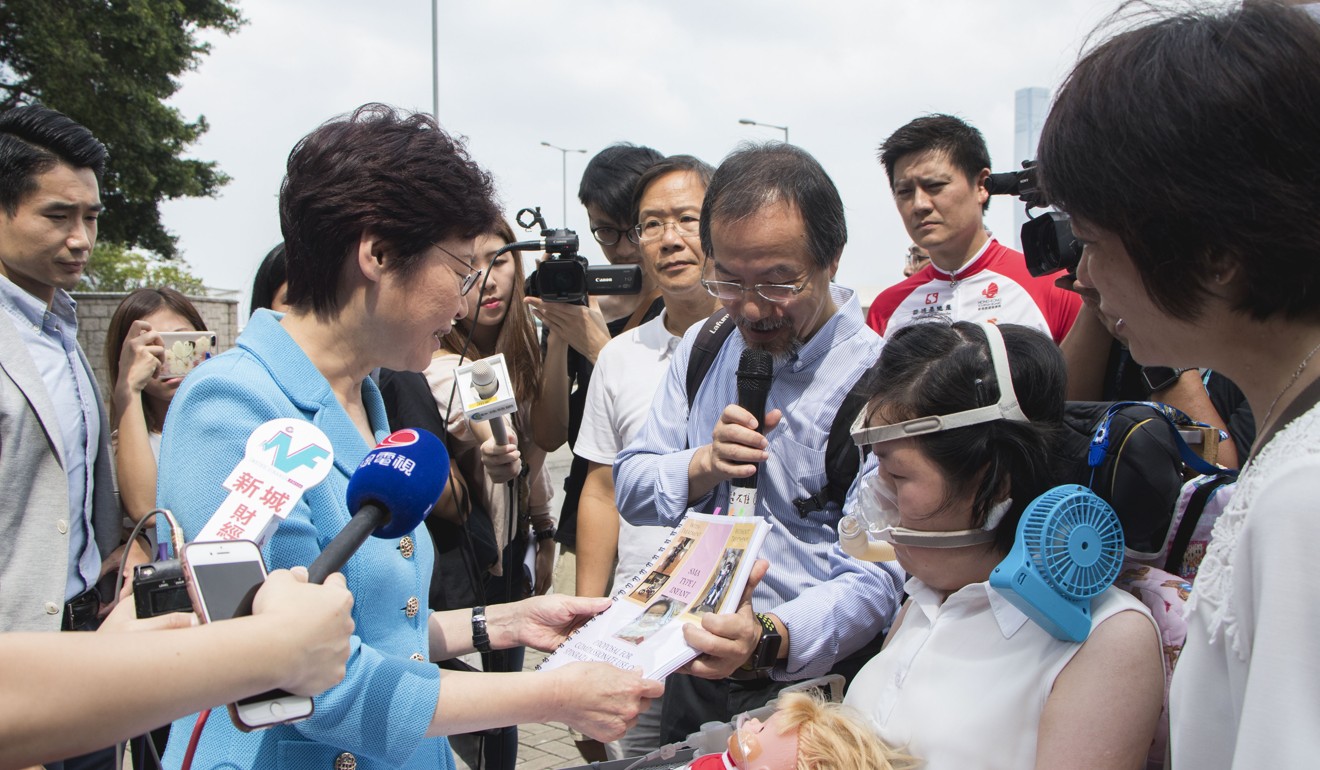
Hong Kong Chief Executive Carrie Lam promises to try to secure treatment for rare disease sufferer
Three days out from her maiden policy address, the chief executive met with members of a rare disease patients group outside her office in Admiralty
Hong Kong’s chief executive has promised a paralysed 23-year-old woman with a rare disease that she will try to get her, and others with her condition, access to a potentially life-saving new drug.
In a surprise move, Carrie Lam Cheng Yuet-ngor met with members of a rare disease patients group who rallied outside the Chief Executive’s Office in Admiralty on Sunday to call for more support from officials.
I only want to help the society before I pass away
Nusinersen was the first drug for SMA approved by the US Food and Drug Administration in December last year, but has yet to be introduced in Hong Kong. Chow had written to Lam asking that patients in Hong Kong be given access to the drug. She handed the chief executive her petition on Sunday alongside more than 30 parents and their children with rare diseases.
Lam said she has asked the secretary for food and health to talk with the US drug maker on how to bring it to Hong Kong.

“This is not a problem concerning the money or the resources,” Lam said. “According to our information, the pharmaceutical factory has no intention to introduce the medicine into Hong Kong at the moment. The government will try [its] best to help the patients ... we will fight to have some compassionate arrangements.”
Disabled students battle against the odds in Hong Kong’s pre-university exams
Compassionate use refers to access to free treatment before a drug is approved in a patient’s country, usually involving an arrangement between the local government and the pharmaceutical firm.
The cost of the drug per patient is about HK$6 million in the first year of treatment and HK$3 million annually in subsequent years.
There are an estimated 85 SMA patients in the city, with 20 of them suffering from the most severe form of the disease and requiring frequent intensive care in hospital.
“It must have been hard as a mother,” said Lam as she gave Chow’s mother a pat on her shoulder. She stayed for about five minutes to listen to their demands.

Chow said she was surprised by Lam’s appearance and felt encouraged by her reply.
“I only want to help the society before I pass away. It is always very tiring for me even though I did not do anything. It is very tiring for me to write.” Chow said.
Chow’s report, which she has been working on since June, is 22 pages long with over 100 pages of appendices to explain the rare disease and analyse the cost-effectiveness of Nusinersen.
Drug trial brings new hope for sufferers of rare genetic disorder, Spinal Muscular Atrophy
Writing was not an easy job for Chow, an English and linguistics student at the University of Hong Kong, as can only type with her right thumb and right index finger. She can only form four to five words per minute on her laptop, and needed to rest for five to 10 minutes between lines.
A Hospital Authority spokesman said it would not include the drug for standard usage as it has not been approved by the Department of Health, and the department said it has not received any application to license the drug. A Food and Health Bureau spokesman said it is contacting the pharmaceutical factory to hear its plan on introducing it in Hong Kong.

